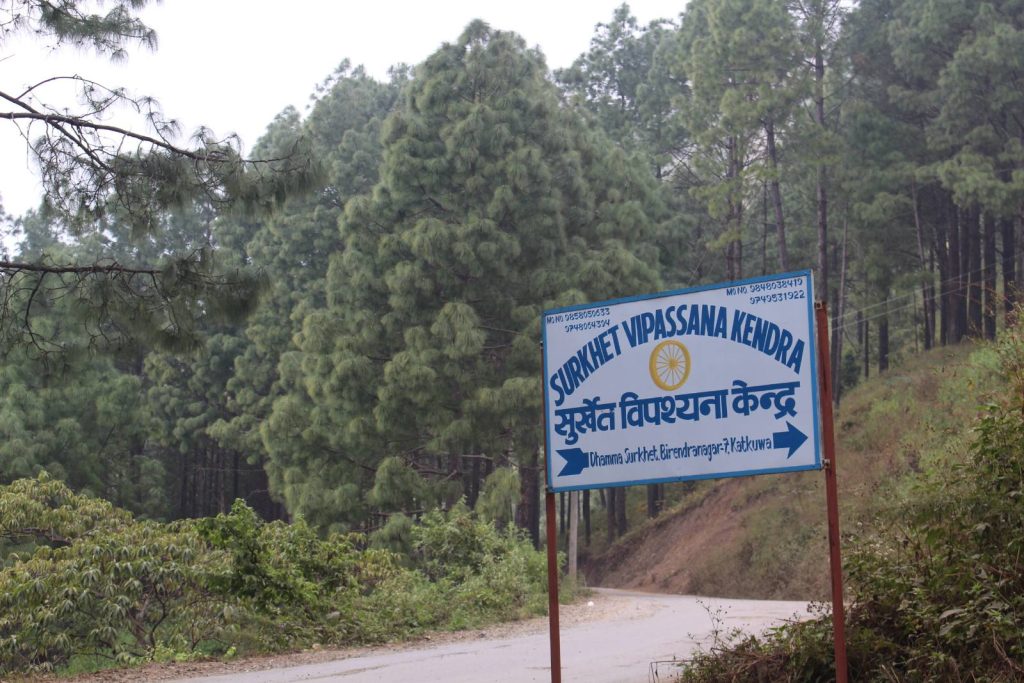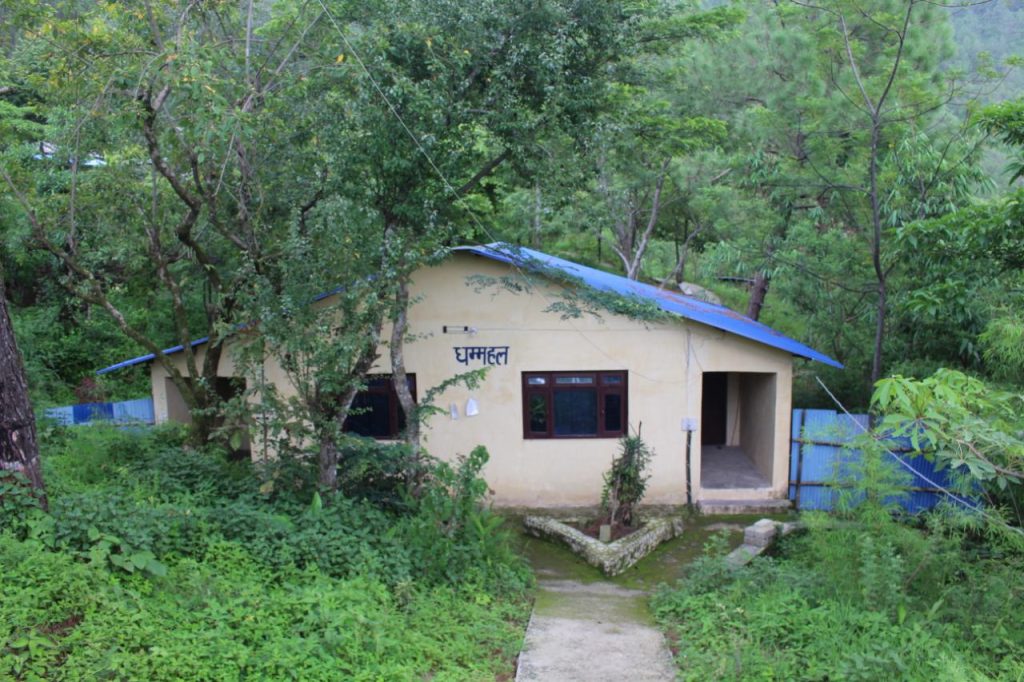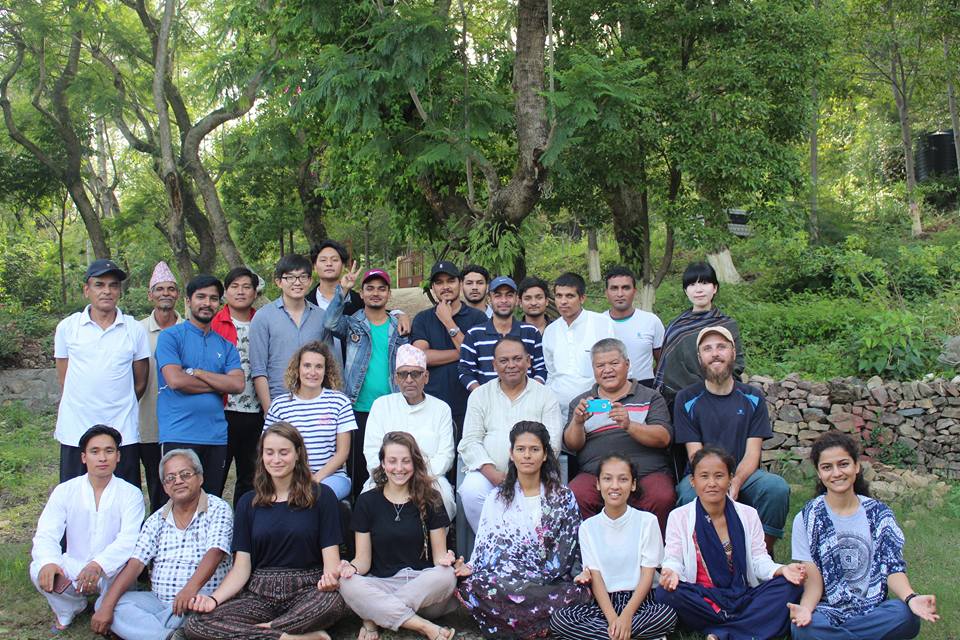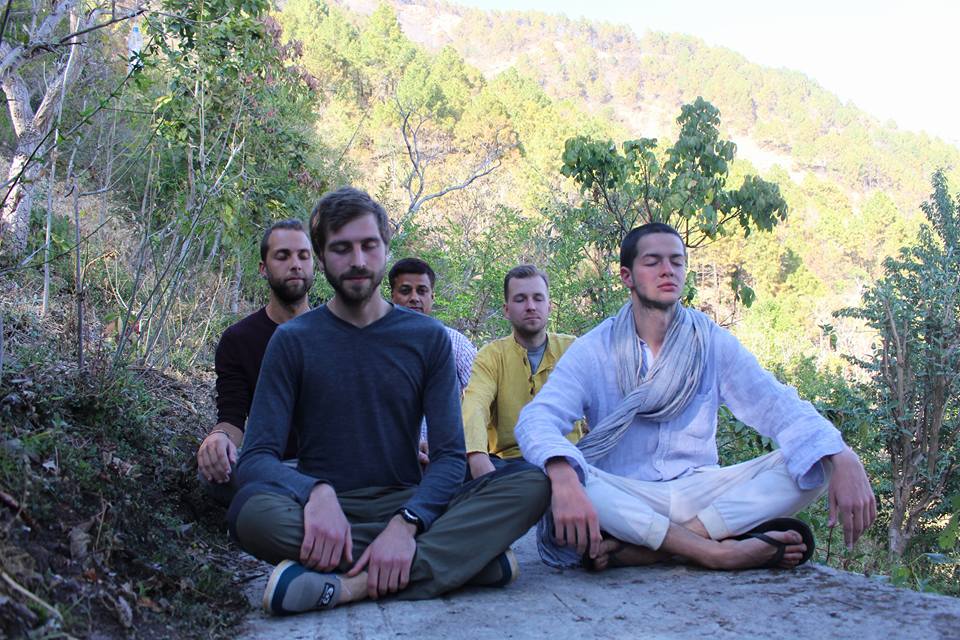Table of Contents
Introduction

Vipassana, which means “to see things as they really are,” is one of India’s most ancient meditation techniques. Rediscovered by Gautama Buddha more than 2,500 years ago, this non-sectarian practice focuses on self-transformation through self-observation, leading practitioners toward a balanced mind characterized by deep peace and harmony.
Today, Vipassana meditation has gained global recognition for its practical approach to mental purification and its profound benefits for psychological well-being. The technique is taught worldwide at dedicated centers where students can immerse themselves in intensive practice, free from external distractions. Among these sanctuaries of stillness is Dhamma Surakhetta, a center nestled in the serene landscapes of western Nepal.
About Dhamma Surakhetta

Dhamma Surakhetta, meaning “Protected Field of Dhamma,” is a Vipassana Meditation Center located in Katkuwa, Surkhet District in western Nepal. Established as part of the global network of centers teaching Vipassana meditation as passed down by S.N. Goenka in the tradition of Sayagyi U Ba Khin, this center serves as a vital spiritual resource for the western region of Nepal.
The center was developed to meet the growing demand for Vipassana meditation in Nepal, particularly in areas farther from the more established centers near Kathmandu. Its founding represents the spread of Dhamma (the universal law of nature discovered and taught by the Buddha) throughout Nepal, making the practice accessible to people in more remote regions.
Situated in the beautiful middle hills of Nepal, Dhamma Surakhetta offers a peaceful environment conducive to deep meditation practice. The natural setting, with its views of rolling hills and clean mountain air, provides an ideal atmosphere for inner exploration and spiritual growth.
Courses Offered

The primary offering at Dhamma Surakhetta is the standard 10-day residential Vipassana meditation course. This immersive experience introduces new students to the technique and allows returning students to deepen their practice. During these ten days, participants:
- Observe complete silence (Noble Silence) for nine days
- Follow a structured daily schedule beginning at 4:00 AM and ending at 9:00 PM
- Learn the technique through step-by-step instructions
- Meditate for approximately 10-11 hours daily
- Abstain from all other religious or spiritual practices, reading, writing, and external communications
Beyond the standard 10-day course, Dhamma Surakhetta also offers:
- Satipatthana Sutta courses for experienced students (those who have completed at least three 10-day courses)
- Special courses for children and teenagers, adapted to their needs and attention spans
- Shorter 3-day courses for old students who wish to refresh their practice
- Service periods where experienced meditators can volunteer to support ongoing courses
All courses follow the teaching method established by S.N. Goenka, using recorded instructions and discourses to ensure consistency and authenticity of the technique across all centers worldwide.
Facilities and Environment

Dhamma Surakhetta provides a simple yet comfortable environment designed specifically for meditation practice. The facilities include:
- A main Dhamma Hall where group meditations and instructions take place
- Individual meditation cells for experienced students
- Separate dormitory accommodations for male and female students
- A dining hall serving simple, nutritious vegetarian meals
- Walking areas and natural spaces for rest and reflection between meditation sessions
- Basic but clean washing and bathroom facilities
The center is designed to minimize distractions while providing for essential needs, allowing students to focus entirely on their meditation practice. The architecture and layout reflect traditional Nepali influences while adhering to the functional requirements of a meditation center.
The natural setting of Dhamma Surakhetta is one of its most remarkable features. Located away from urban noise and pollution, the center offers a peaceful backdrop of hills and forests. The clean air, natural sounds, and beautiful views create an environment that naturally calms the mind and supports the meditation process.
Spiritual Impact

The impact of courses at Dhamma Surakhetta extends far beyond the 10-day experience. Practitioners often report profound and lasting benefits, including:
- Reduced stress and anxiety
- Greater emotional balance and resilience
- Improved concentration and mental clarity
- Enhanced self-awareness and understanding
- Deeper compassion for oneself and others
- More harmonious relationships
- A practical framework for navigating life’s challenges
While individual experiences vary, many participants describe their time at Dhamma Surakhetta as transformative. The technique’s emphasis on direct experience rather than blind faith resonates with people from diverse backgrounds, allowing each person to verify the benefits through their own practice.
Local Nepali participants often note how the technique has helped them cope with the specific challenges of life in Nepal, from natural disasters to economic hardships, by developing mental strength and equanimity.
How to Join
Joining a course at Dhamma Surakhetta involves a straightforward application process:
- Check the course schedule on the official website (https://surakhetta.dhamma.org/) or their Facebook page.
- Complete an application form online or through local contacts.
- Await confirmation from the center management.
- Prepare for the course by reviewing the code of discipline and practical information provided upon acceptance.
Important considerations for prospective students include:
- Cost: All courses are offered free of charge. The centers operate solely on donations from old students who have completed at least one 10-day course and wish to share the benefits with others.
- Prerequisites: No prior meditation experience is necessary for first-time students. The technique is taught from the beginning.
- Health requirements: Applicants should be in reasonably good physical and mental health to manage the demands of the intensive schedule.
- Commitment: Students are asked to remain for the entire duration of the course and to follow the code of discipline completely.
Given the high demand, especially during peak seasons, early application is recommended.
Community and Volunteerism

Dhamma Surakhetta operates entirely on a voluntary basis, embodying the principle of selfless service (seva). The center is run by:
- A trust or committee responsible for overall management
- Temporary course managers who oversee specific courses
- Kitchen volunteers who prepare meals
- Maintenance volunteers who care for the grounds and facilities
- Past students who return to serve and support new practitioners
This volunteer model creates a strong sense of community and shared purpose. For those who have experienced the benefits of Vipassana, serving at the center provides an opportunity to deepen their own practice while helping others on their journey.
Volunteers at Dhamma Surakhetta come from various backgrounds—local Nepalis and international visitors alike—but share a common commitment to the spread of Dhamma. Their contribution is vital to making these courses accessible to all, regardless of financial means.
For those interested in volunteering, the center welcomes help in various capacities, from short-term kitchen assistance to longer-term roles in administration or maintenance. Old students can contact the center directly to inquire about service opportunities.
Final Words
Dhamma Surakhetta stands as a beacon of peace and self-discovery in western Nepal. In a world increasingly marked by stress and distraction, this center offers a time-tested path to inner peace through the ancient practice of Vipassana meditation.
For the people of western Nepal, the establishment of Dhamma Surakhetta represents an important development—bringing a profound meditation practice closer to home and making spiritual growth more accessible. For visitors from further afield, it offers an opportunity to practice in a beautiful and authentic setting, surrounded by the natural majesty of Nepal.
Whether one comes seeking relief from suffering, greater mental clarity, or deeper understanding of oneself, Dhamma Surakhetta provides the conditions and guidance necessary for meaningful inner work. Through the simple yet powerful technique of Vipassana, practitioners at this center continue a tradition that stretches back to the Buddha himself—the tradition of liberation through self-observation and awareness.
As Dhamma Surakhetta continues to serve meditators from Nepal and beyond, it fulfills its purpose as a protected field where the seeds of Dhamma can be planted, nurtured, and brought to fruition in the hearts and minds of all who come with sincere intention.

Leave a Reply